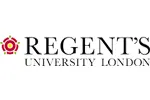We're moving! This site will be relocating to goingto.university in 2026. Please update your bookmarks to the new address.


the United Kingdom
Regent's University London| The award | How you will study | Study duration | Course start | Domestic course fees | International course fees |
|---|---|---|---|---|---|
| BA, UG:Bachelor | Full-time | 4 years | September, January, May | GBP 14475 per year | GBP 14475 per year |
This is an American degree, four years in length.
The International Relations major emphasises the understanding of global issues and world cultures, and traces the political, social, ideological and economic history of the world.
You will develop a detailed knowledge of the major branches of the field, including international security, foreign policy, international political economy, international law and organisations and the international relations theory that holds it all together.
The curriculum is interdisciplinary and you will examine the complexities of different regions in the world, international organisations, diplomacy, war and peace, and human rights.
Four courses in a non-native language are required (this is waived for who are studying in English as their second language).
Why should I choose this programme?
As globalisation, sustainability, terrorism and foreign intervention continue to shape our world, the BA International Relations programme intellectually prepares you to meet the challenges of tomorrow.
This programme should interest you if you want to understand how the international system works, how decisions are made and lines are drawn.
Key skills, aims and objectives
Future opportunities
This programme will equip you with the essential skills that employers value across a multitude of industry areas, in public and private sectors. It offers a sound preparation for entry into a number of careers, including diplomacy, international business, economics, history, law and political science.
Previous graduates have benefited from employment opportunities in government organisations and agencies, international organisations, non-governmental organisations, think-tanks, academic and media organisations.
Below are some suggested courses at other providers that you may also be interested in:
Study Abroad Programme Study Abroad
Institute of European Studies, Jagiellonian University
Find out moreMarketing Management - Digital Business Concepts Bachelor Degree
Fontys Economy Tilburg
Find out moreLeader Communication in a Cross Cultural & Changing World Short Course
ESSCA School of Management – Online Programs
Find out moreWriting for Theatre, Film, Radio and Television MA, MFA, MA
Royal Central School of Speech and Drama
Find out moreAdvanced Bachelor of Bioinformatics Advanced Diploma, Bachelor Degree
Howest University of Applied Sciences
Find out moreConsider a Foundation or Pathway course at Regent's University London to prepare for your chosen course:
BA (Hons) International Business with Integrated Foundation
Regent's University London
Find out moreIf you do not meet the entry requirements for this course then consider one of these courses from another institution:
There are 67 other courses listed from Regent's University London. A selection of these are displayed below:
Advanced Diploma in Existential Psychotherapy Advanced Diploma
Regent's University London
Find out moreAdvanced Diploma in Integrative Psychotherapy Advanced Diploma
Regent's University London
Find out moreBA (Hons) Global Management - pathway in Global Business & Design Management BA (Hons)
Regent's University London
Find out moreJoin the StudyLink email list and never miss a chance to turn your study abroad dreams into reality!

Find out more about studying in the United Kingdom